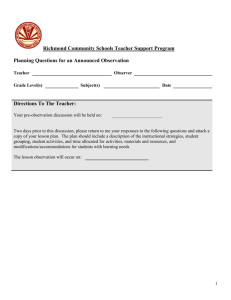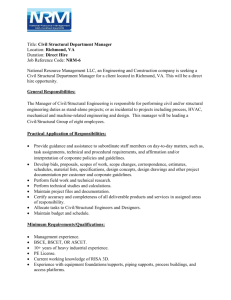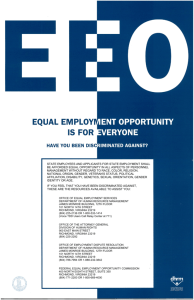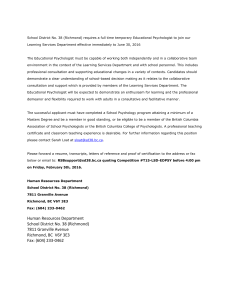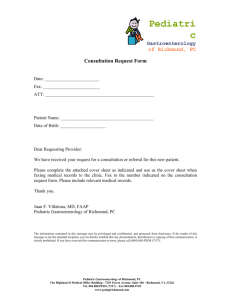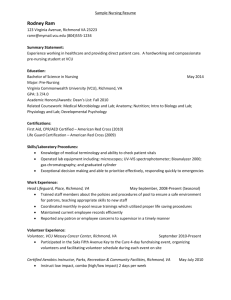CSD ACC 5205 Advanced Financial Accounting
advertisement
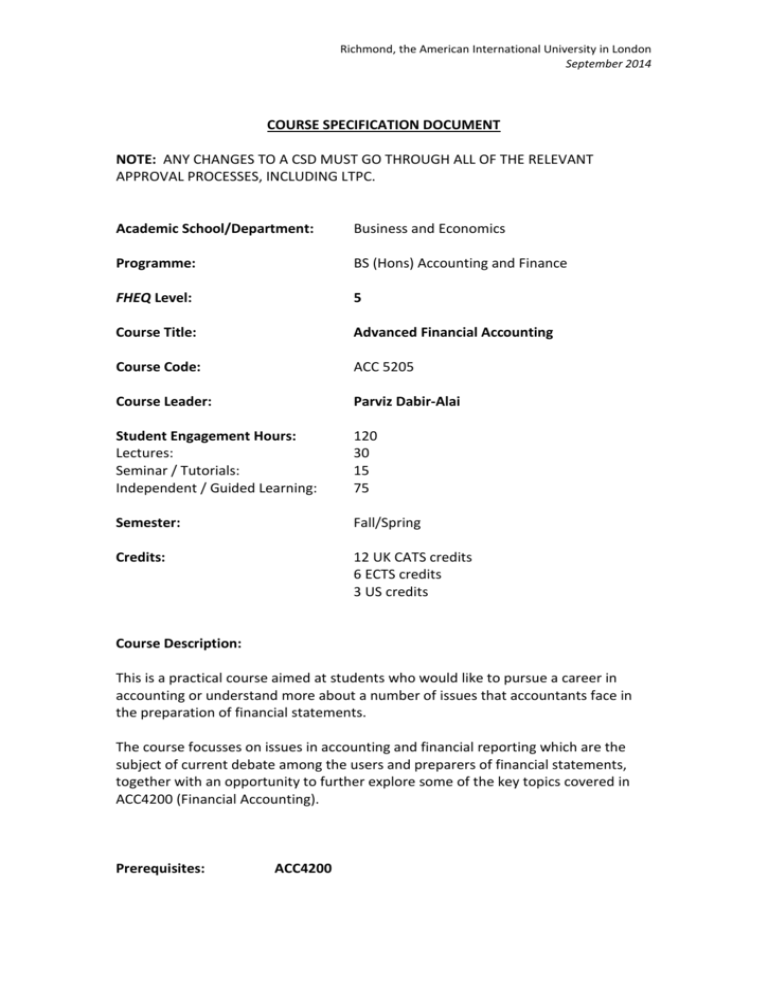
Richmond, the American International University in London September 2014 COURSE SPECIFICATION DOCUMENT NOTE: ANY CHANGES TO A CSD MUST GO THROUGH ALL OF THE RELEVANT APPROVAL PROCESSES, INCLUDING LTPC. Academic School/Department: Business and Economics Programme: BS (Hons) Accounting and Finance FHEQ Level: 5 Course Title: Advanced Financial Accounting Course Code: ACC 5205 Course Leader: Parviz Dabir-Alai Student Engagement Hours: Lectures: Seminar / Tutorials: Independent / Guided Learning: 120 30 15 75 Semester: Fall/Spring Credits: 12 UK CATS credits 6 ECTS credits 3 US credits Course Description: This is a practical course aimed at students who would like to pursue a career in accounting or understand more about a number of issues that accountants face in the preparation of financial statements. The course focusses on issues in accounting and financial reporting which are the subject of current debate among the users and preparers of financial statements, together with an opportunity to further explore some of the key topics covered in ACC4200 (Financial Accounting). Prerequisites: ACC4200 Richmond, the American International University in London September 2014 Aims and Objectives: Students are encouraged to explore a number of accounting issues in more depth and to apply these together with the knowledge gained in ACC4200 to a number of different case study style scenarios. Some of the more complex areas of accounting will be discussed and students will apply alternative treatments to line items in the financial statements,analysing the results to understand the impact of alternative accounting treatments on the financial statements of an organisation and on company performance ratios. Programme Outcomes: A1, A2, A3, A4, A5 B1, B2 C1 D1 A detailed list of the programme outcomes are found in the Programme Specification. This is located at the archive maintained by the Academic Registry and found at: http://www.richmond.ac.uk/content/academic-schools/academicregistry/program-and-course-specifications.aspx Learning Outcomes: By the end of this course, successful students should be able to: Knowledge and Understanding • Demonstrate a knowledge of all the steps required in a system of double entry bookkeeping and accounting, including the treatment of some of the more complex accounting issues faced by an organisation • Explain and apply alternative methods of consolidating financial accounts, including the translation of the financial statements of an overseas subsidiary in preparation for the production of consolidated financial statements • Demonstrate an understanding of how to deal with accounting for various types of acquisitions • Describe and apply methods for dealing with errors and omissions in financial information • Establish the impact on financial statements, and the implications for users of accounts, of alternative ways of treating some of the more complex accounting items Richmond, the American International University in London September 2014 Cognitive skills • Apply numeracy and quantitative skills, including data analysis and interpretation • Critically reflect on different treatments of accounting issues Practical and/or Professional skills • Using the case study style scenarios, apply different accounting treatments, comment on the effect on the financial statements and performance ratios and advise on the most appropriate accounting treatment for that given situation • Prepare detailed and accurate solutions, in an appropriate format, to a range of accounting issues • Understand why errors and omissions in financial information may occur and advise on the most appropriate course of action when preparing financial statements • Develop a critical attitude to different accounting methods Key Skills • Identify key issues in a given practical problem and choose appropriate methods for their resolution • Analyse a range of financial and accounting information with minimal guidance • Select appropriate techniques of evaluation and evaluate the relevance and significance of data collected Indicative Content: • • • • • • A review of bookkeeping skills The alternative methods of consolidating financial statements Accounting for acquisitions, business combinations and non-controlling interests Foreign currency translation issues and application Current issues in accounting, such as spin-off transactions and carve out activities, impairments and environmental accounting Exploration of the alternative accounting treatments of the more complex issues in accounting, including: o Pension contributions Richmond, the American International University in London September 2014 o o o o o o • • Contingent liabilities Different measurement bases goodwill and intangible Leasing Fair value and valuation issues Derivatives Analysis of the alternative accounting treatments on the financial statements and on company performance ratios, including a comparison of the way different organisations in the same industry may have different methods of accounting for some items Dealing with errors, omissions, post balance sheet events and incomplete records through the use of practical case study examples Assessment: This course conforms to the Richmond University Standard Assessment Norms approved at Learning and Teaching Policy Committee found at: http://www.richmond.ac.uk/content/academic-affairs/academic -standing.aspx. Teaching Methodology: Teaching will be a combination of lectures and case study style class exercises. Student participation is essential and group discussions are a vital part of learning. Students are required to do some independent study, presenting their findings through the preparation of financial information. Bibliography: See syllabus for complete reading list IndicativeText(s): Alexander, D., Britton, A. And Jorissen, A. (2011) International Financial Reporting and Analysis. 5th edition, London: Cengage Learning Collins, B. and McKeith, J. (2009) Financial Accounting and Reporting, 2nd edition, McGraw Hill Deegan, C. and Unerman, J. (2011) Financial Accounting Theory, 2nd European edition, McGraw-Hill Dunn, John (2010) Financial Reporting and Analysis, Wiley Elliott, B. and Elliott, J. (2009) Financial Accounting and reporting, 13th edition, Harlow: FT/Prentice Hall (ebook) Godfrey, J., Hodgson, A., Tarca, A., Hamilton, J. and Holmes, S. (2010) Accounting Theory, Wiley & Sons Richmond, the American International University in London September 2014 International Accounting Standards Board (2010) International Financial Reporting Standards Journals Accountancy (ICAEW) Student Accountant (ACCA) Web Sites www.accaglobal.com www.icaew.com www.ifac.org www.frc.org.uk Please Note: The core and the reference texts will be reviewed at the time of designing the semester syllabus ____________________________________________________________________ Change Log for this CSD: Major or Minor Change? Nature of Change Date Approved & Approval Body (School or LTPC) Change Actioned by Academic Registry
